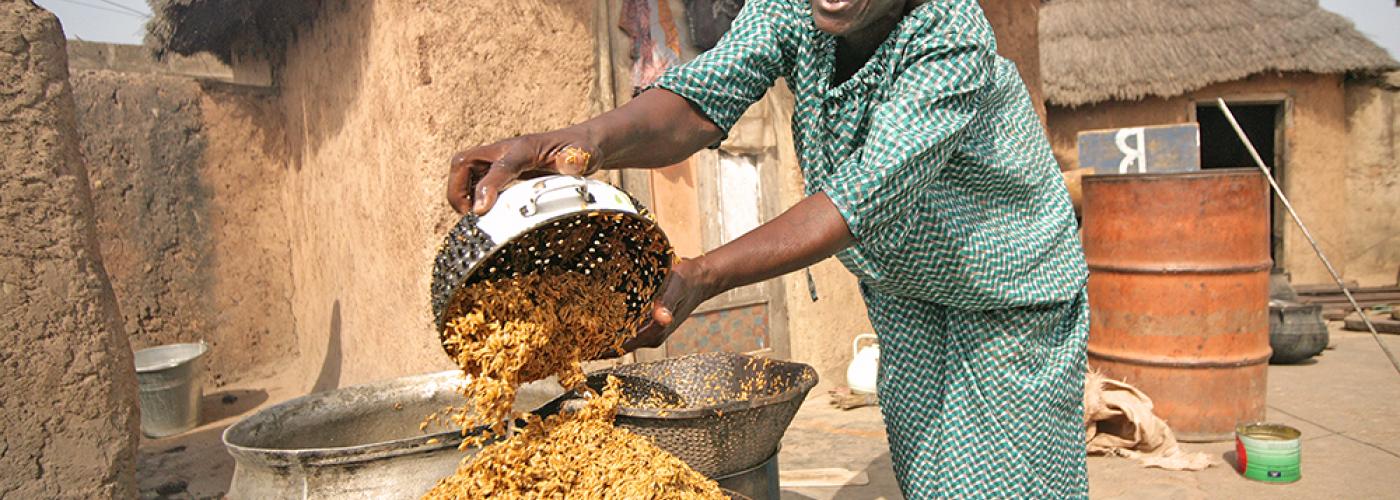Introducing ResilienceLinks: A New Knowledge Platform for Global Resilience
Image

Resilience – the ability to manage through crisis without compromising future wellbeing – is increasingly recognized as an essential part of global development. Droughts, flooding, and other shocks and crises threaten the livelihoods of millions and cost millions of dollars in humanitarian assistance each year. As a changing climate makes extreme weather events more intense and unpredictable, it is more urgent than ever that we understand how to effectively build the resilience of individuals, communities, and markets.
That’s why we’re excited to announce the launch of ResilienceLinks, a new global knowledge platform for resilience practitioners. With resources and event announcements from USAID as well as other donors and implementers, ResilienceLinks is a premier source of information coordinating with and complementing other platforms. The platform features:
- Evidence and analysis: Browse reports, studies, analyses, and other resources from resilience practitioners around the world. Search by topic or country to learn more about resilience building within these contexts, and contribute your own evidence.
- World map: Navigate the map and explore resources for resilience-focused countries and all countries working on building resilience and resilience capacities.
- Resilience topics overview: Get an overview of how sectors and topics like access to markets, financial inclusion, livelihood risk diversification, gender, and many more intersect with and impact resilience.
- Events and trainings: Stay up to date on upcoming resilience-focused events and trainings and catch up on events you missed.
To build global resilience, we need resilience practitioners around the world to share learning and knowledge around global resilience. We need evidence and data on what works and why it works so that we can efficiently, effectively, and quickly meet the pressing need to build global resilience. We need to know what works best in a given context and how to adapt that approach to other contexts. We already have a knowledge base that includes many important findings, such as:
- Evidence from Bangladesh shows that removing capital constraints to migration can have positive impacts on seasonal hunger and well-being. An experimental study found that cash or credit travel subsidies induced more households to migrate, and migrants earned $110 on average at the destination and saved and carried back about half of the income The families of these migrants consumed 600 calories more per person per day, raised their per-capita expenditures by 30 percent, increased protein consumption by 35 percent, and spent more on child education In doing so, they effectively eliminated the lean season In terms of value for money, the same amount of food in the form of food aid would cost five times as much.
- Mercy Corps examined the role of gender and social inclusion in understanding vulnerability and resilience and identified several best practices, including partnering with local organizations that focus on often-excluded groups; incorporating the perspectives of often-excluded persons in program design, governance, and decision-making; and providing gender equity and social inclusion training for program and partner staff.
- Market systems can negatively impacted by crises, but resilient market systems can also contribute to community, household, and individual resilience. A paper on USAID’s framework for measuring market system resilience examines markets as complex adaptive systems to better understand how market systems respond to shocks and stresses and proposes a theory of change for how to strengthen market system resilience capacities.
Every day, we are learning more about what works best in building global resilience, and your contributions are essential to continuing to build this evidence base. Head over to ResilienceLinks and explore the resources, country profiles, and topics, and contribute your own resources and events!

